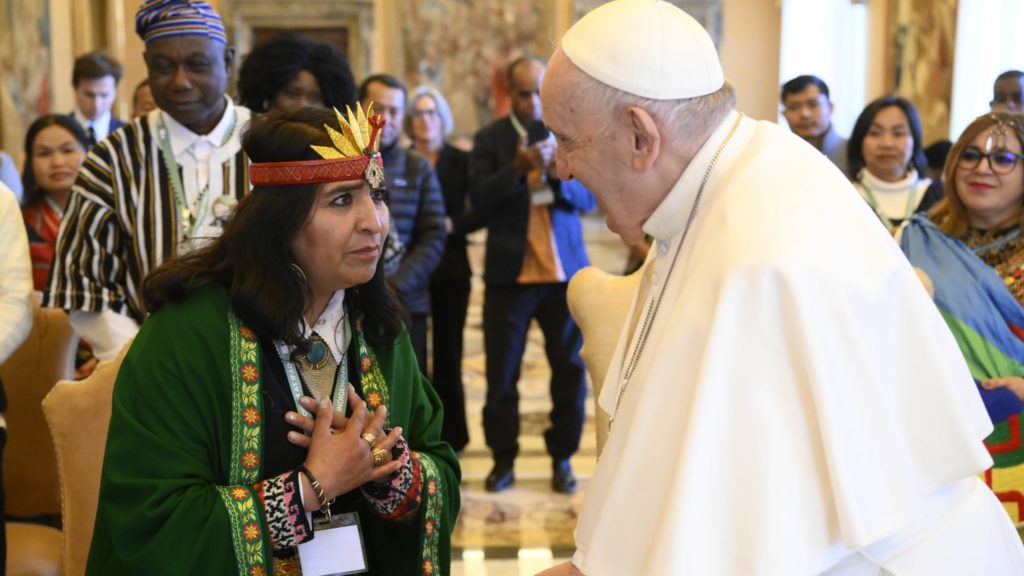Indigenous people have a "fundamental role" in protecting the planet from "unprecedented" social and environmental threats, Pope Francis said.
Meeting with participants from the Forum of Indigenous Peoples, organized by the International Fund for Agricultural Development -- a U.N. agency based in Rome -- the pope praised the theme of this year's forum, "Leadership of Indigenous peoples on climate issues: Community-based solutions for improving resistance and biodiversity."
All people should listen to the wisdom of Indigenous people to understand the human roots of the environmental crisis and take steps toward developing sustainable practices, the pope said. "If we really want to care for our common home and better the planet we live in, profound changes in lifestyle, production and consumption are essential."
"Aboriginal cultures are not to be converted to a modern culture," he said. "They are to be respected."
Pope Francis also called on governments to recognize Indigenous people's rights, as well as their "cultures, languages, traditions and spiritualities."
Ignoring Indigenous communities, the pope said, "is a grave error, not to say a great injustice."
A lack of recognition for Indigenous territorial rights has led to the targeting of Indigenous populations, particularly those who live on lands where there are fossil fuel and mineral reserves. Global Witness, a nongovernmental organization, reported that 1,733 land and environmental defenders, many of them Indigenous persons, have been killed since 2012, primarily in Latin America.
Pope Francis specifically noted the mining practices in the Amazon region and deforestation in other places that "destroy peoples."
The pope told the participants that now, more than ever, many people are calling for changes to the power structures that govern Western society and are seeking to transform the historic relationship of exclusion and discrimination toward Indigenous people "marked by colonialism."
Action against climate change, he said, must be taken in "constant collaboration" with Indigenous peoples, "because the environmental challenge we are facing, and its human roots have an impact on each one of us."
According to the International Labor Organization, Indigenous people represent approximately 6.2% of the world's population.

